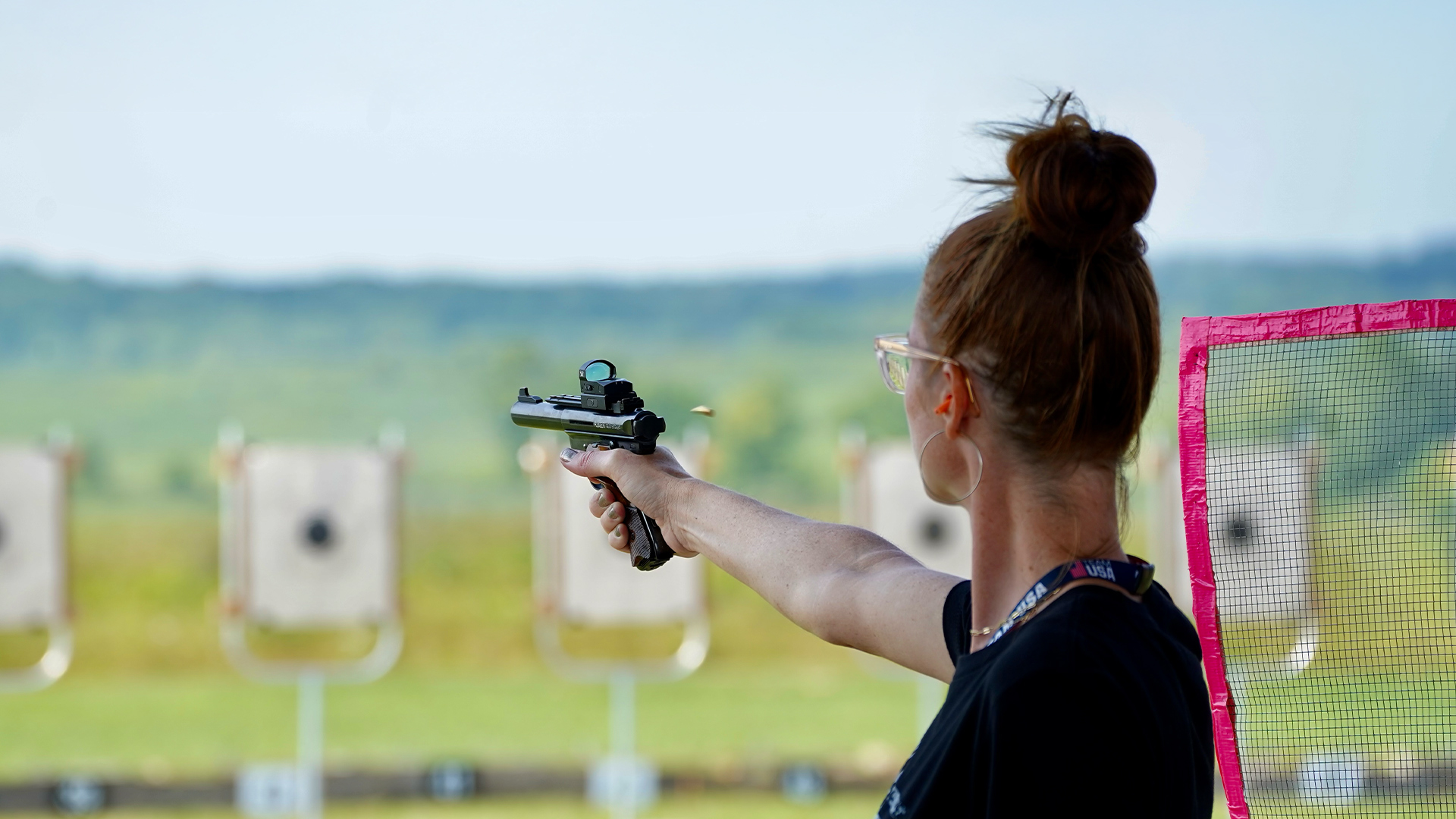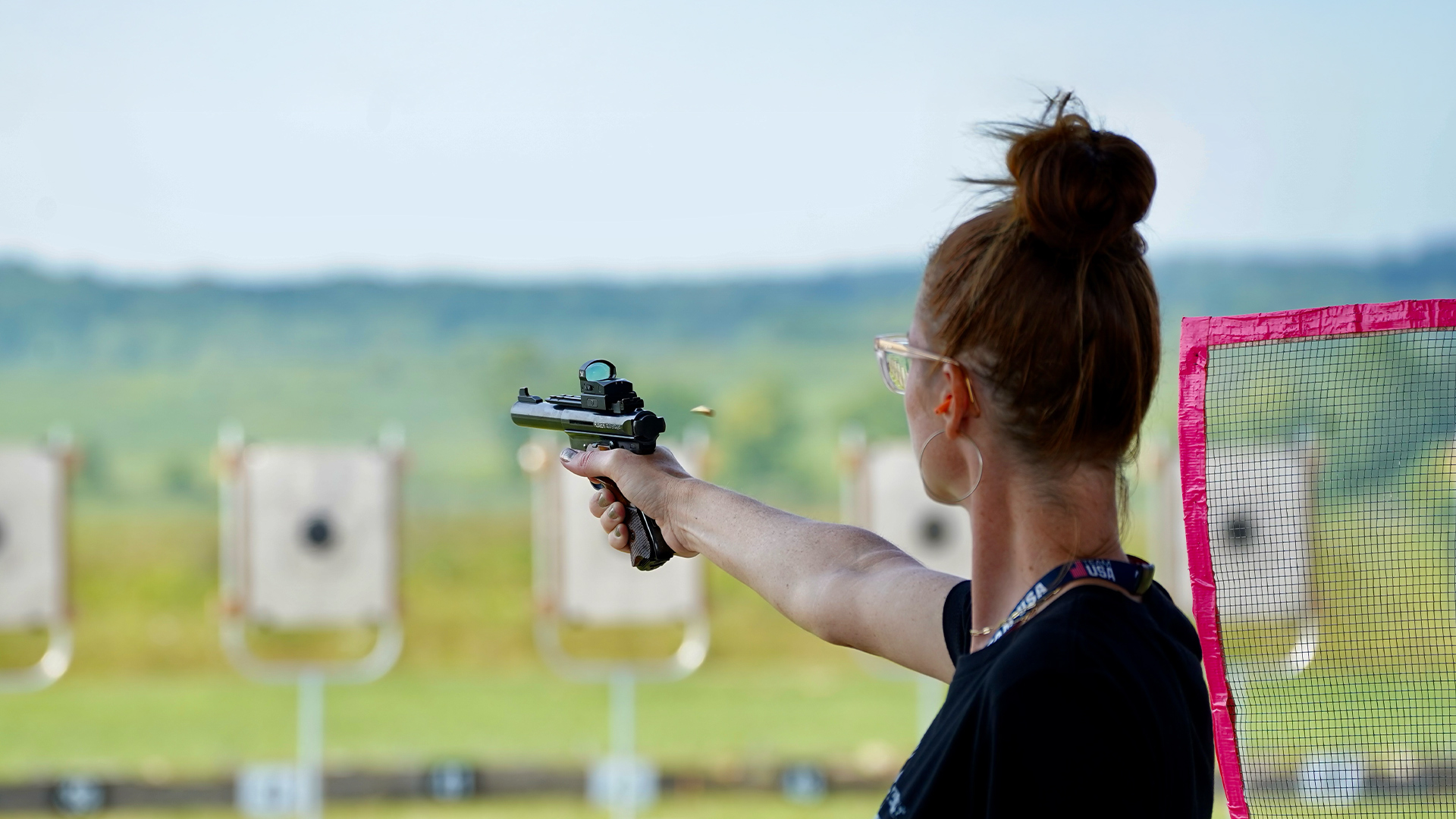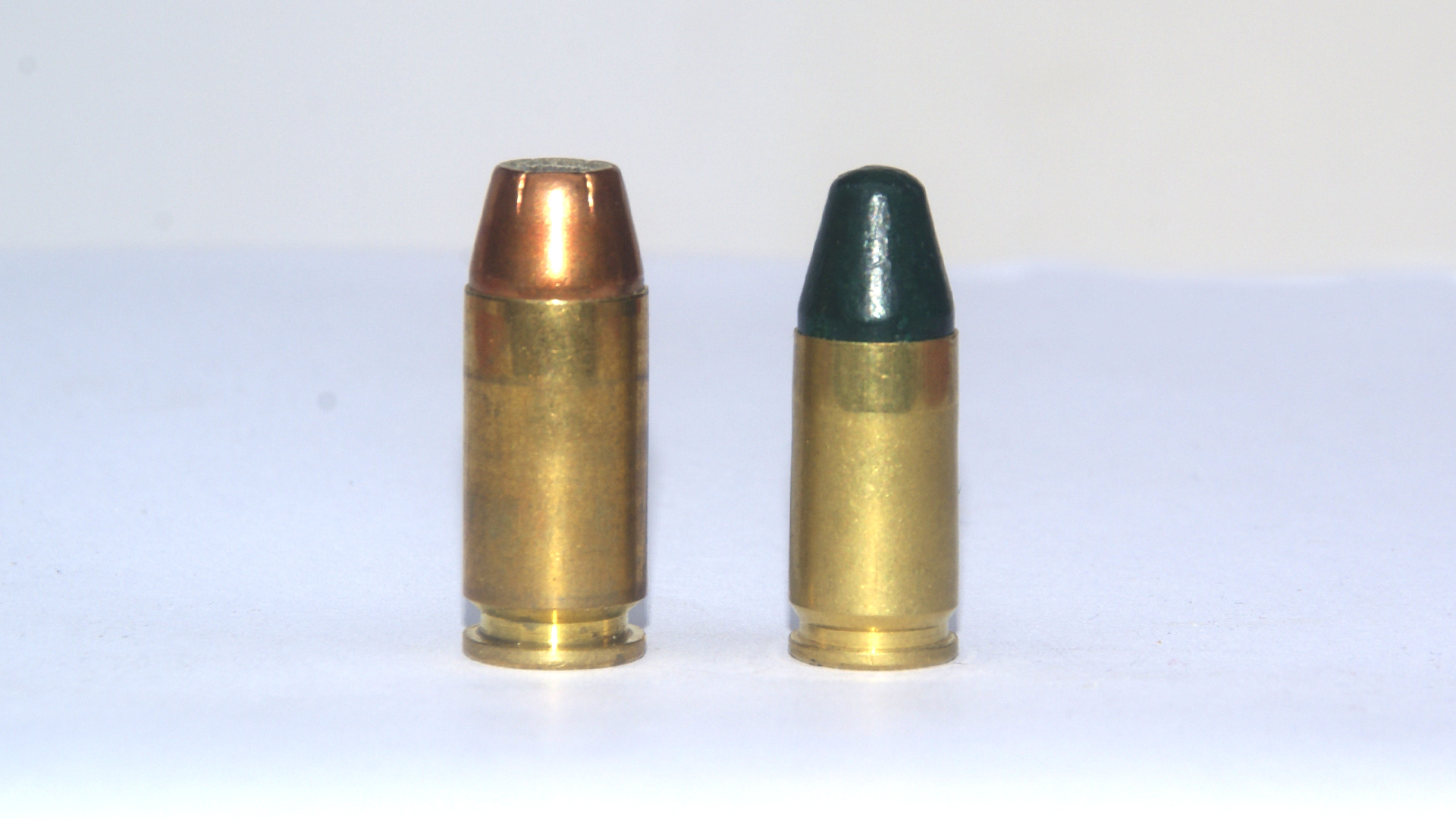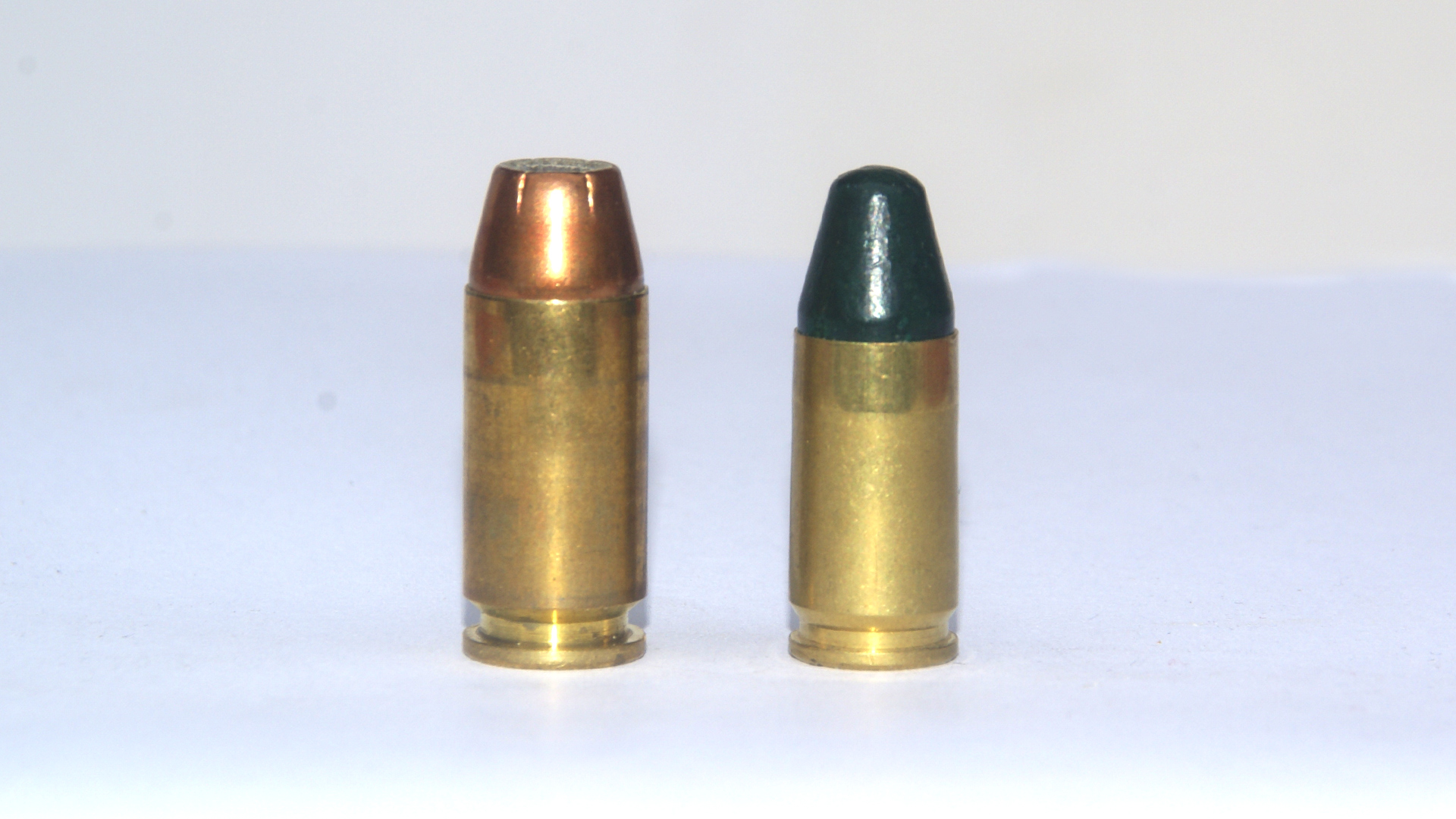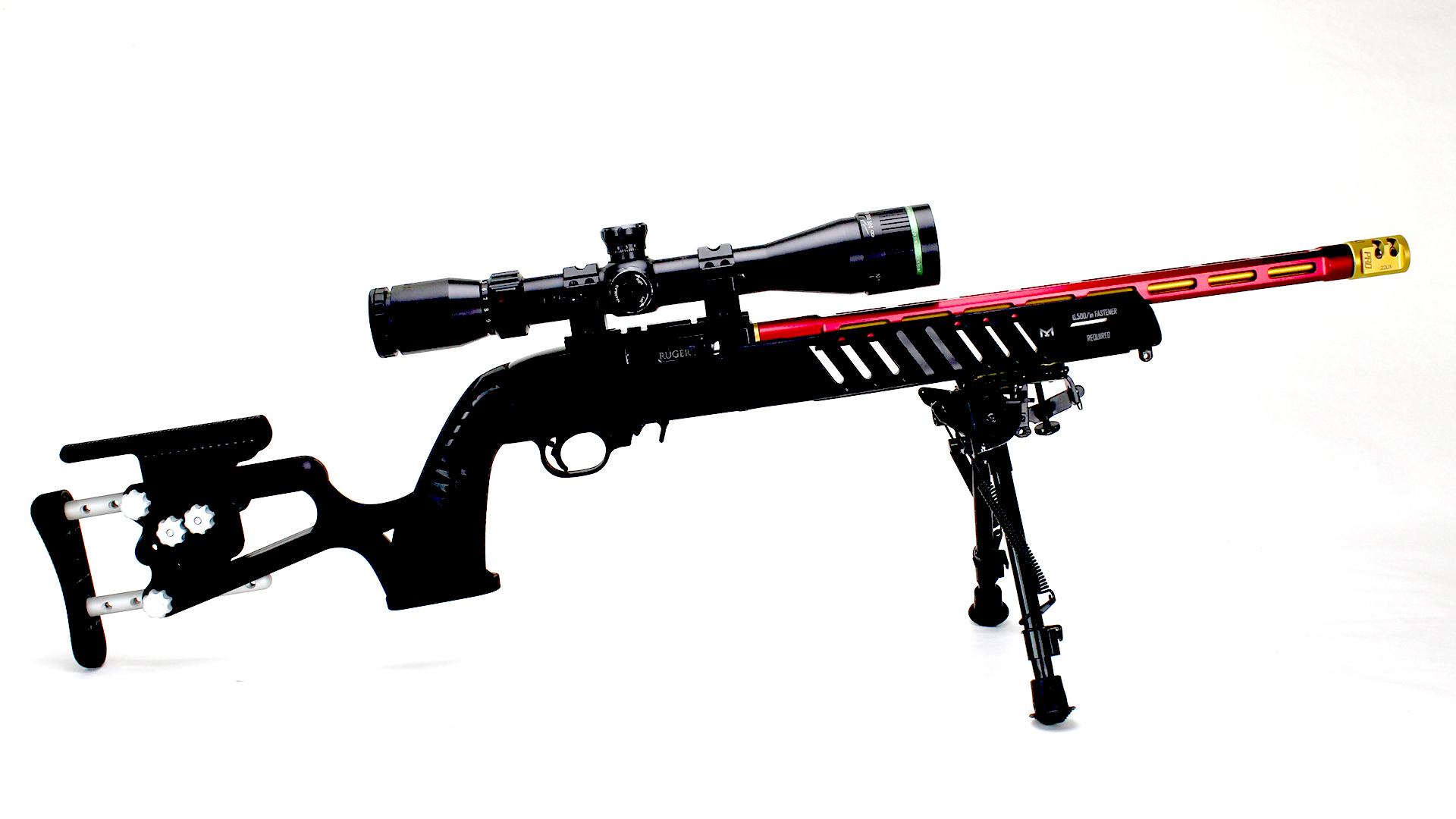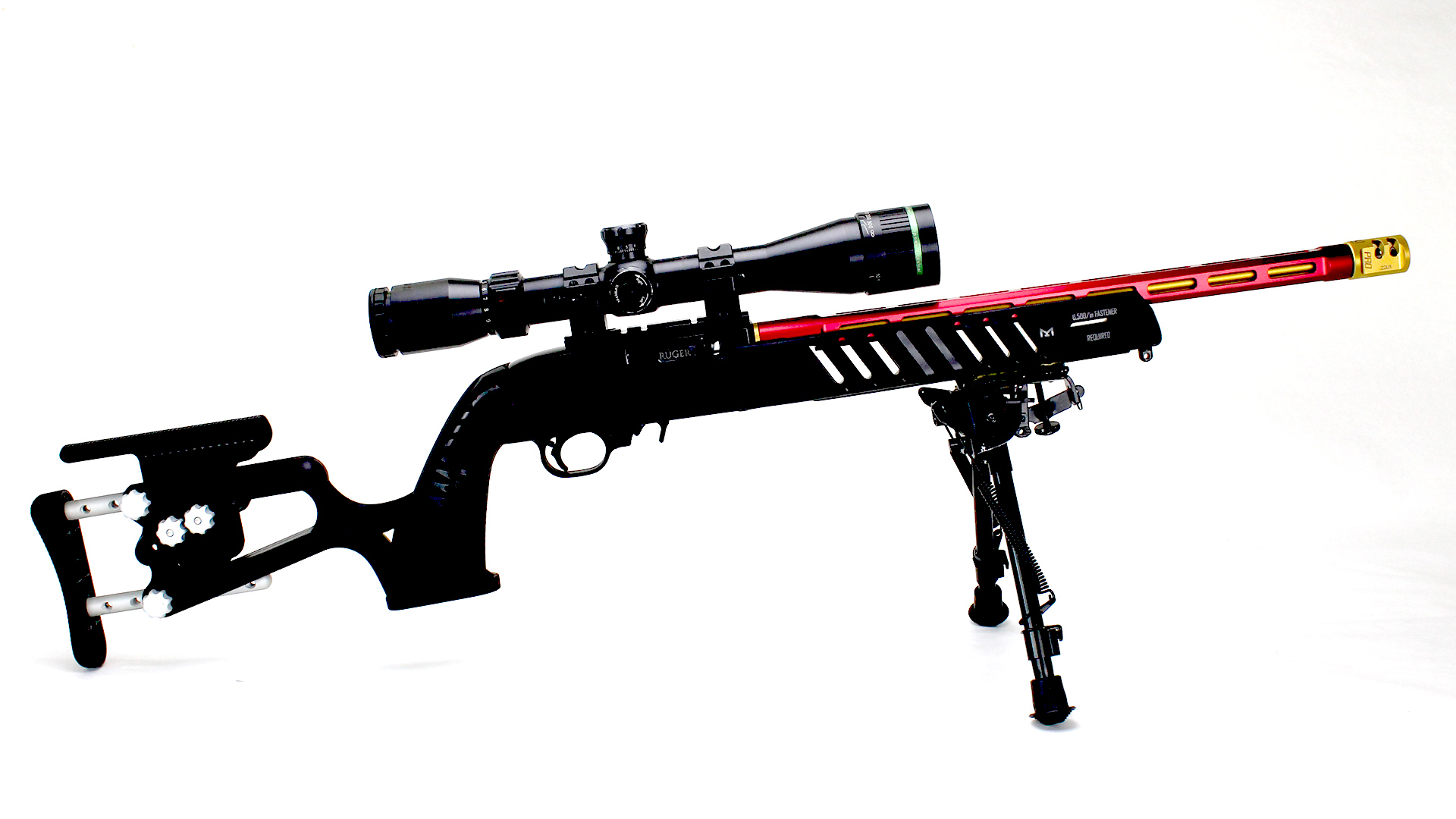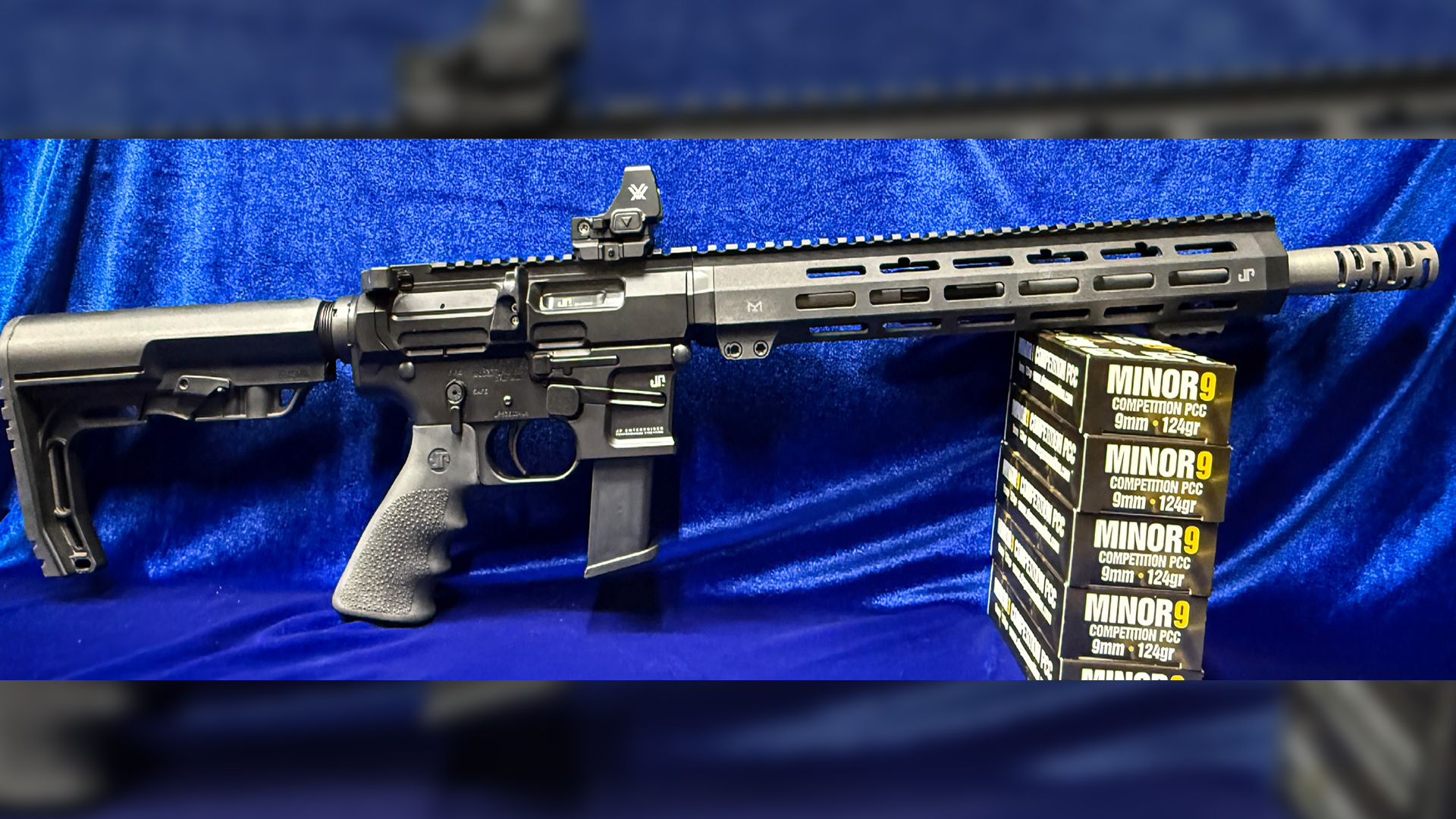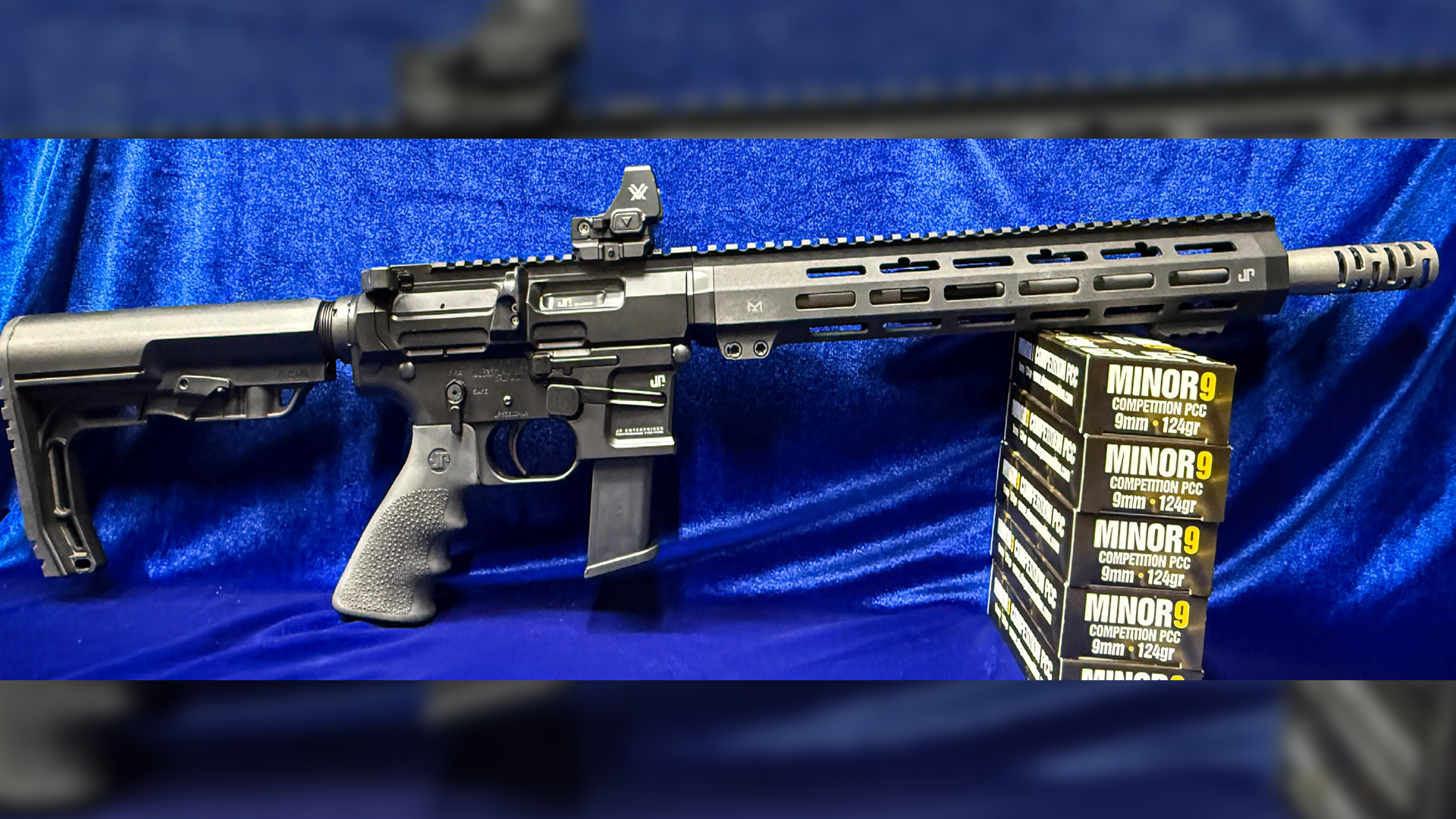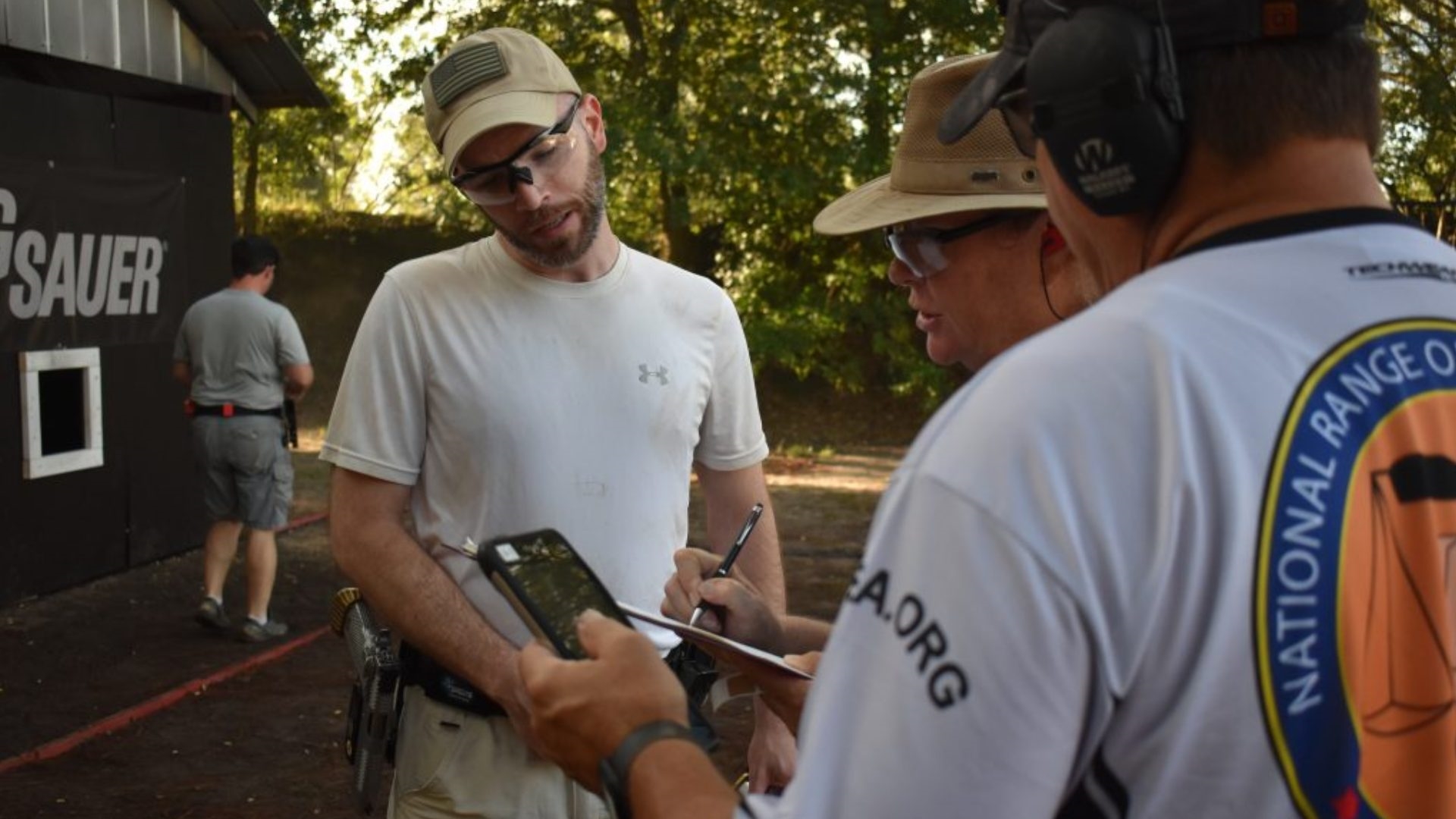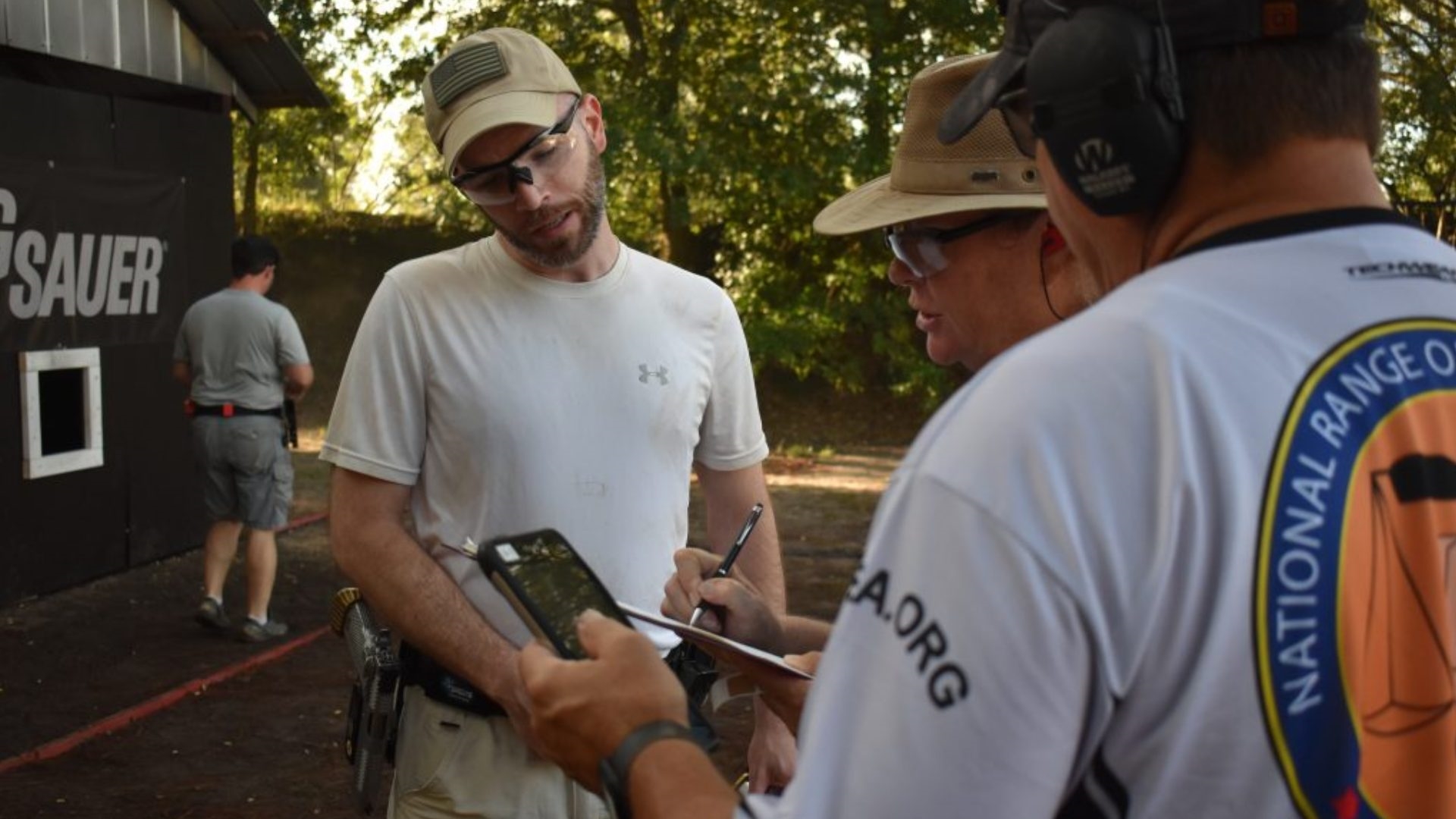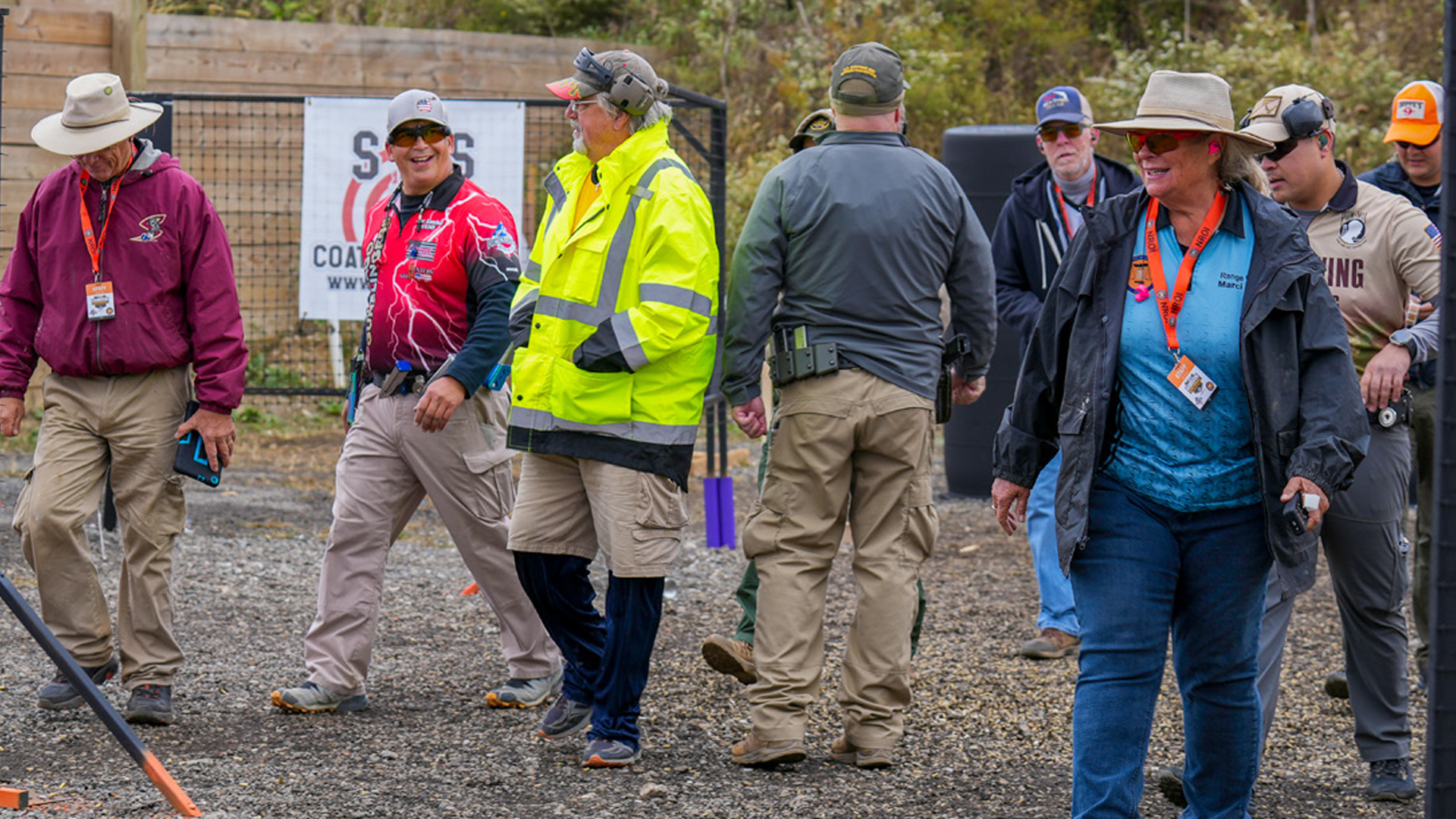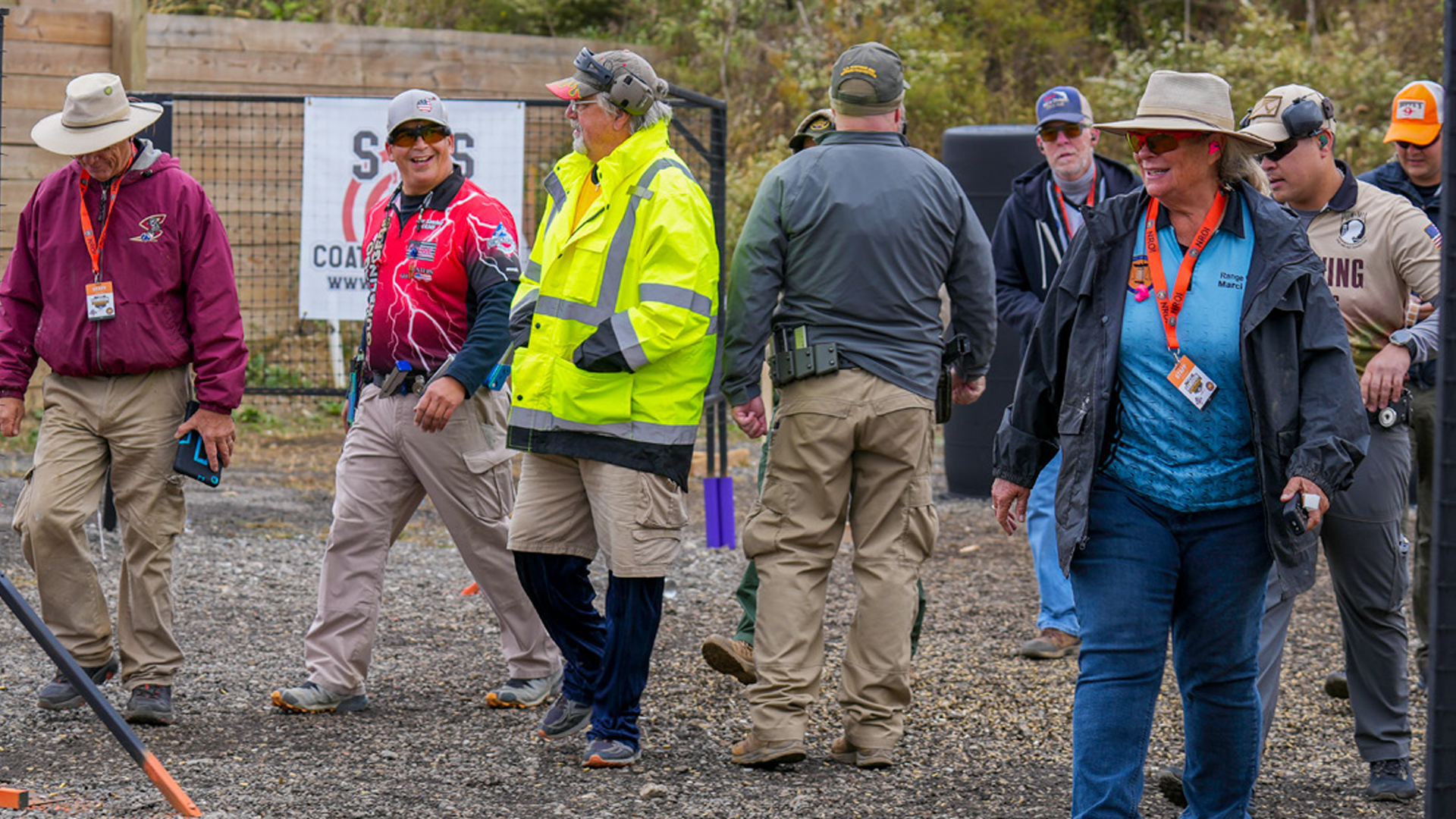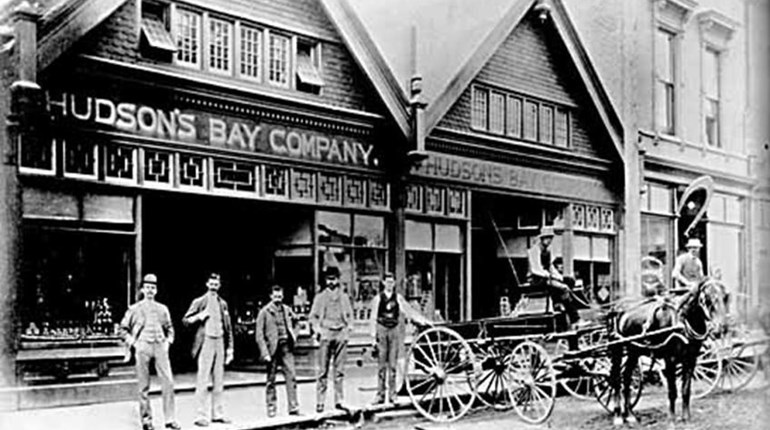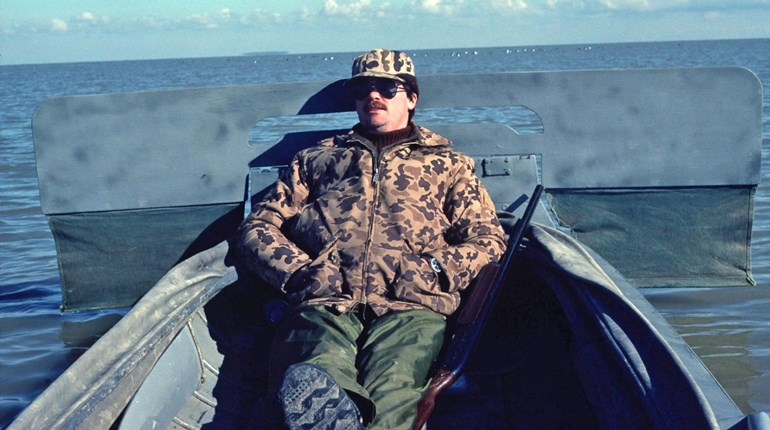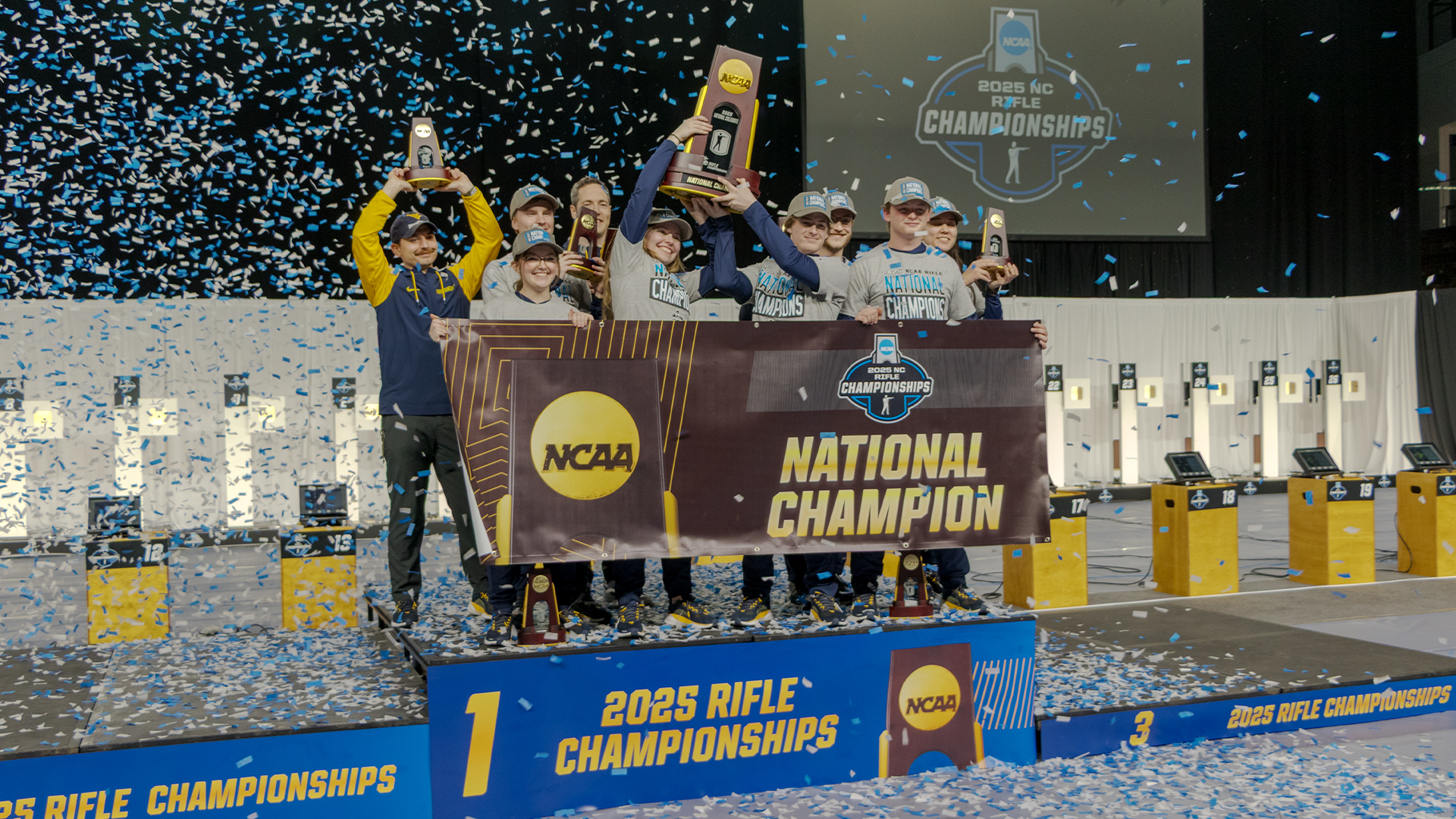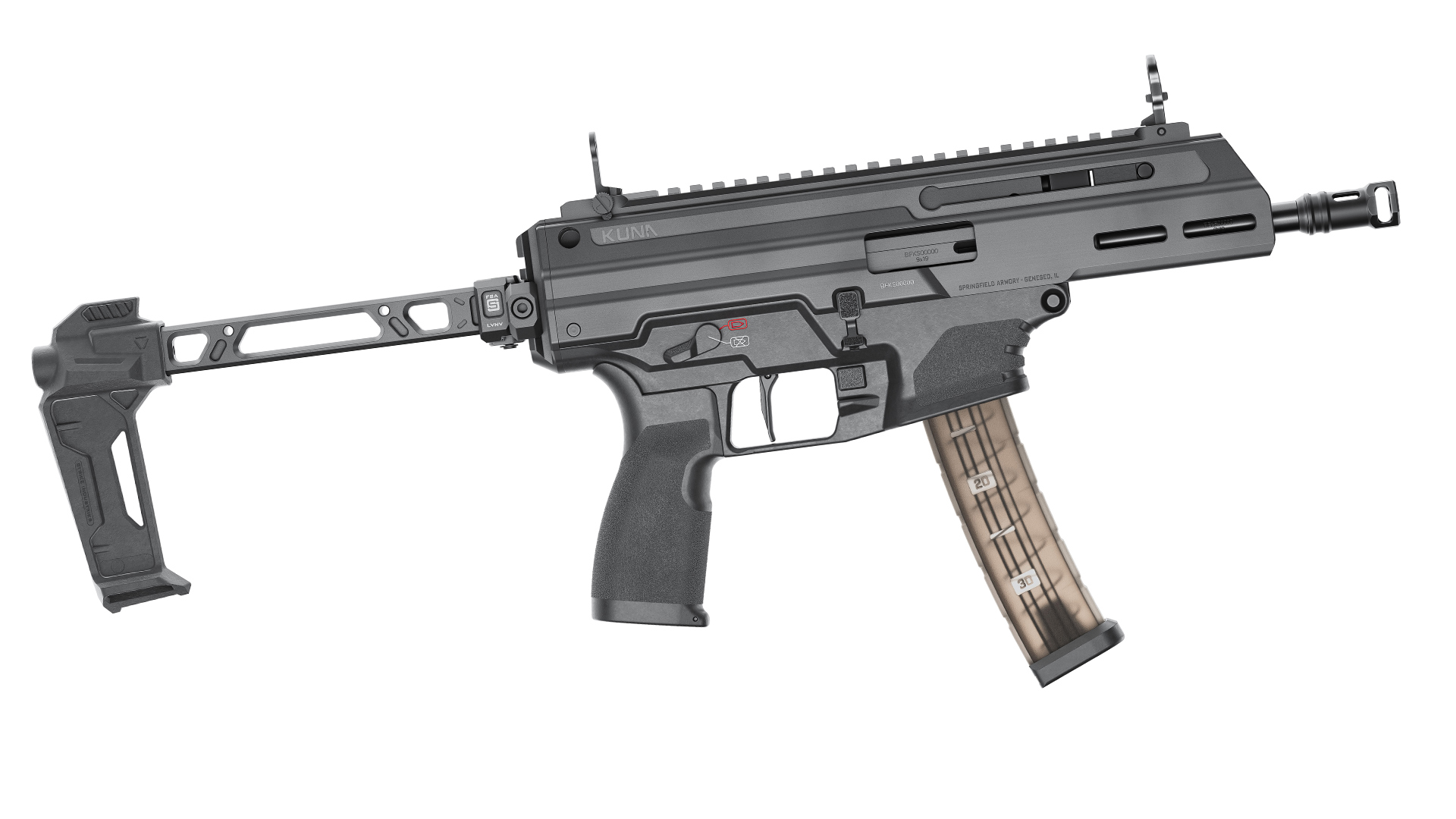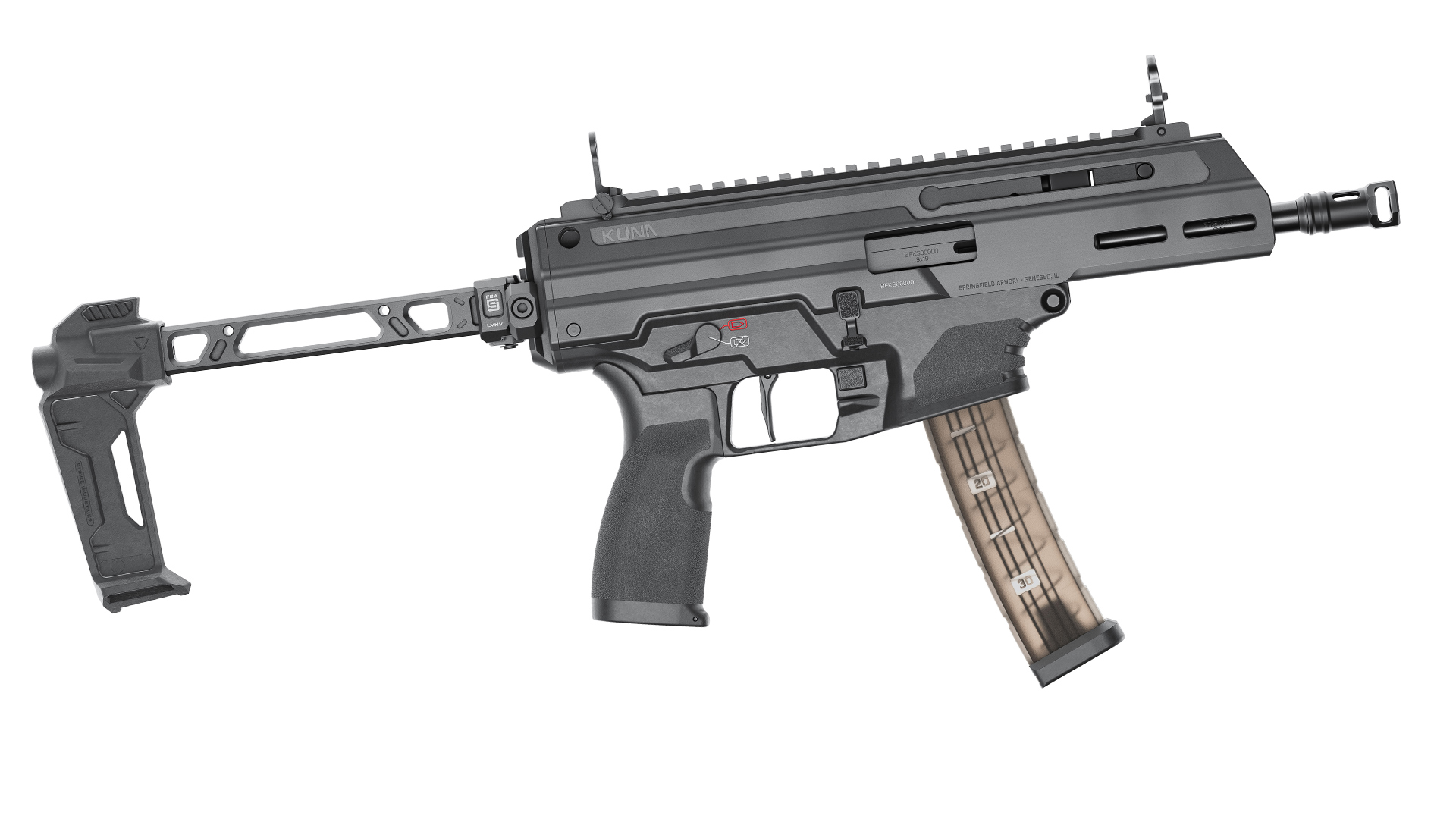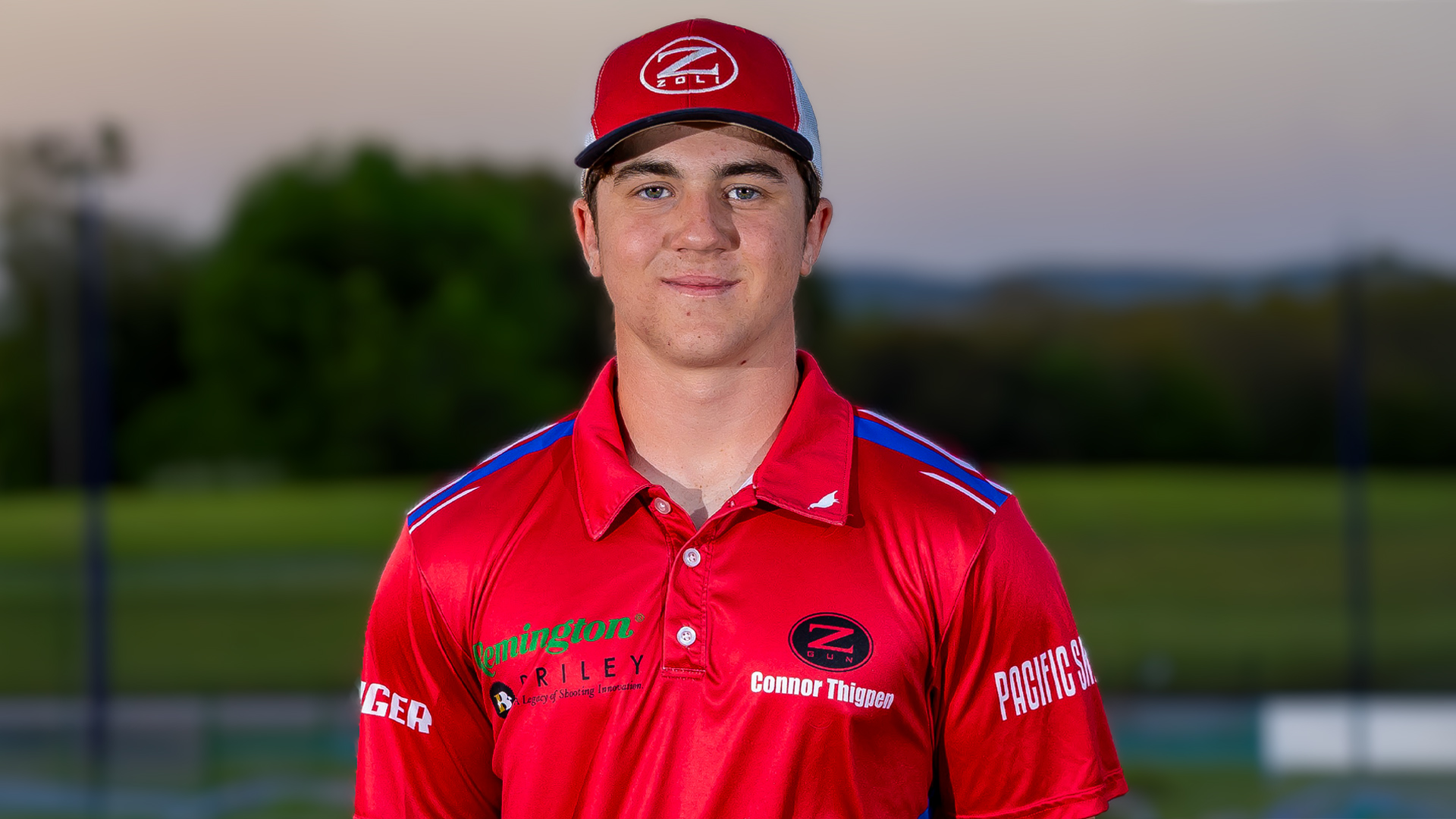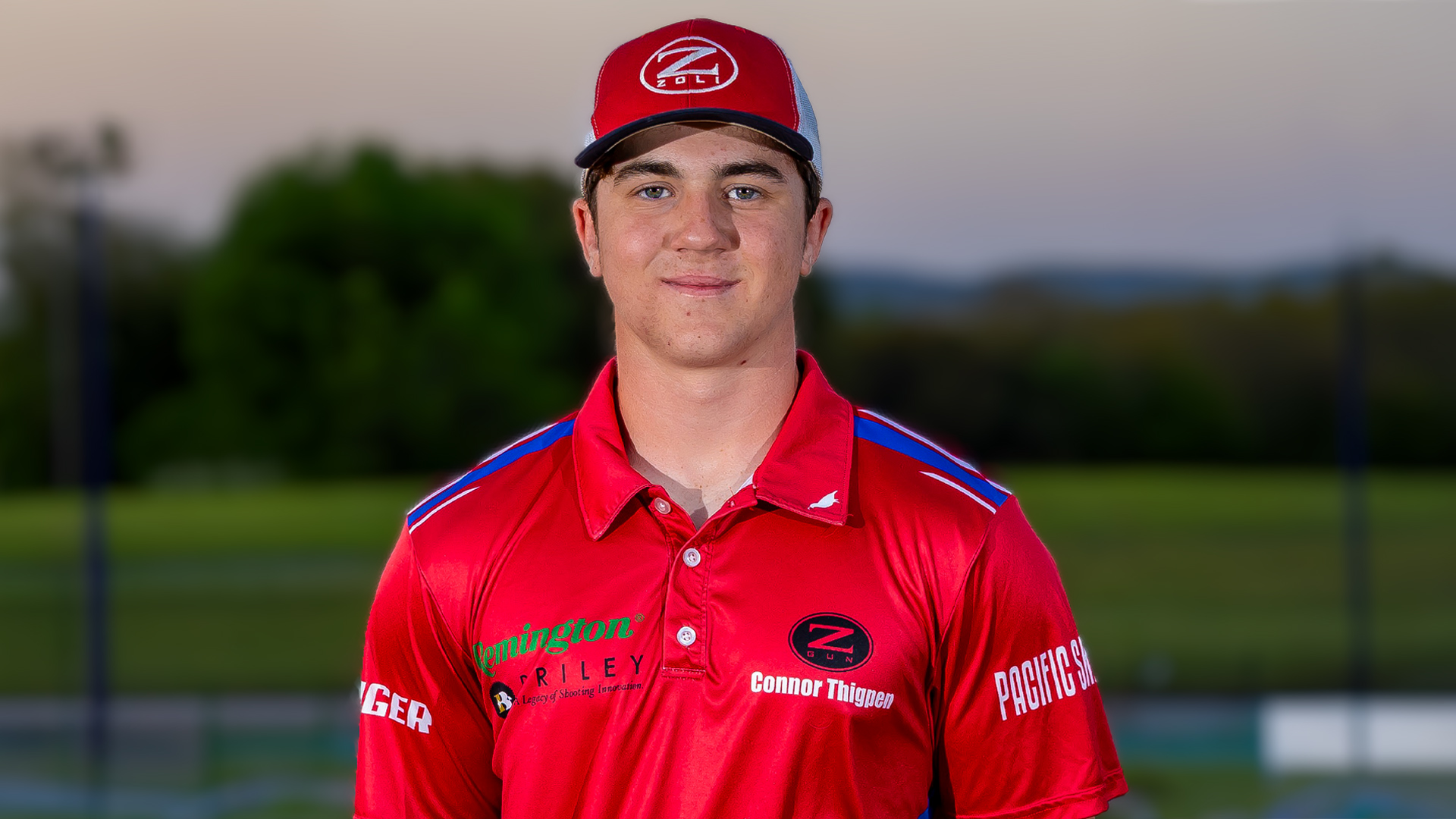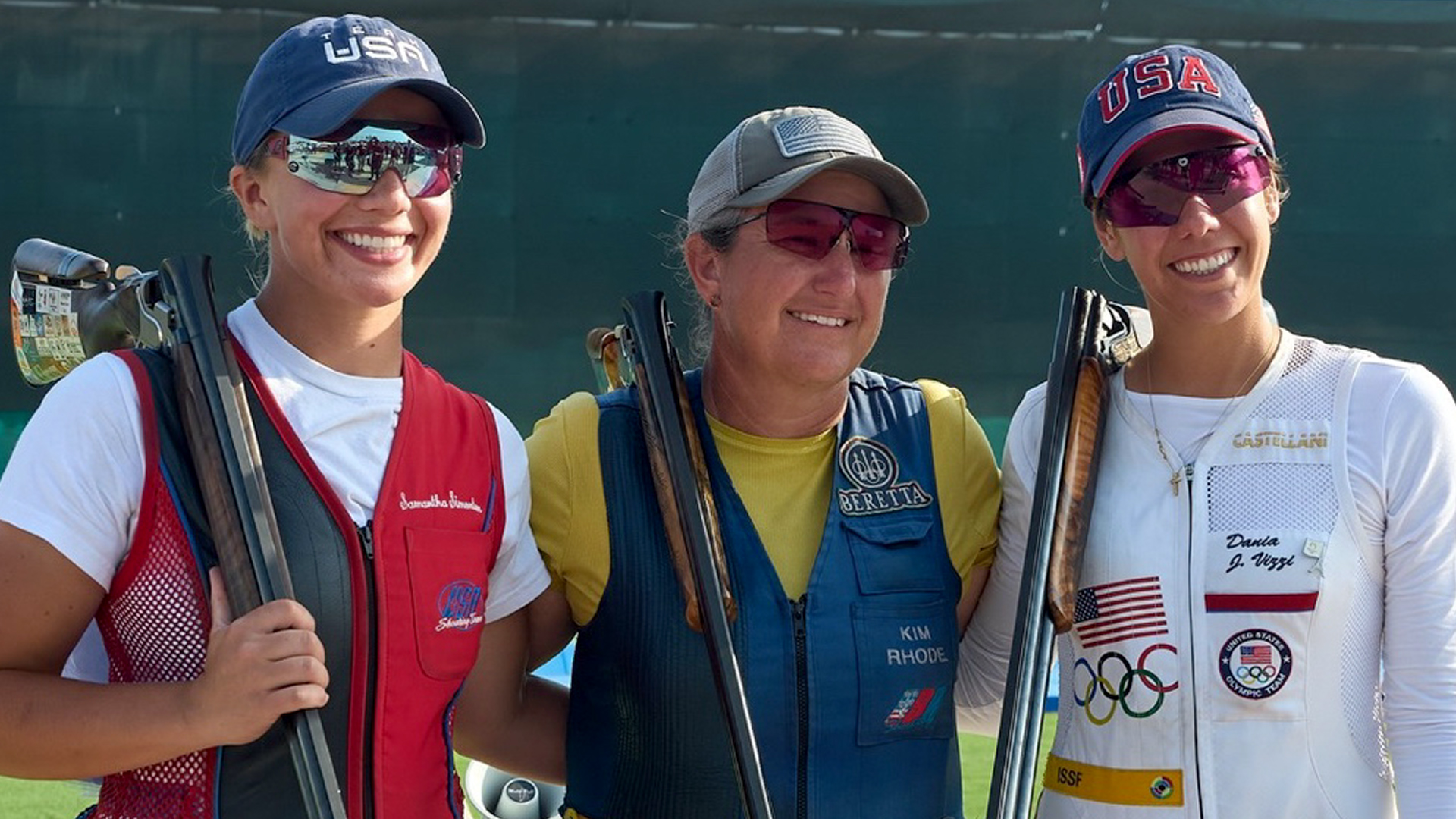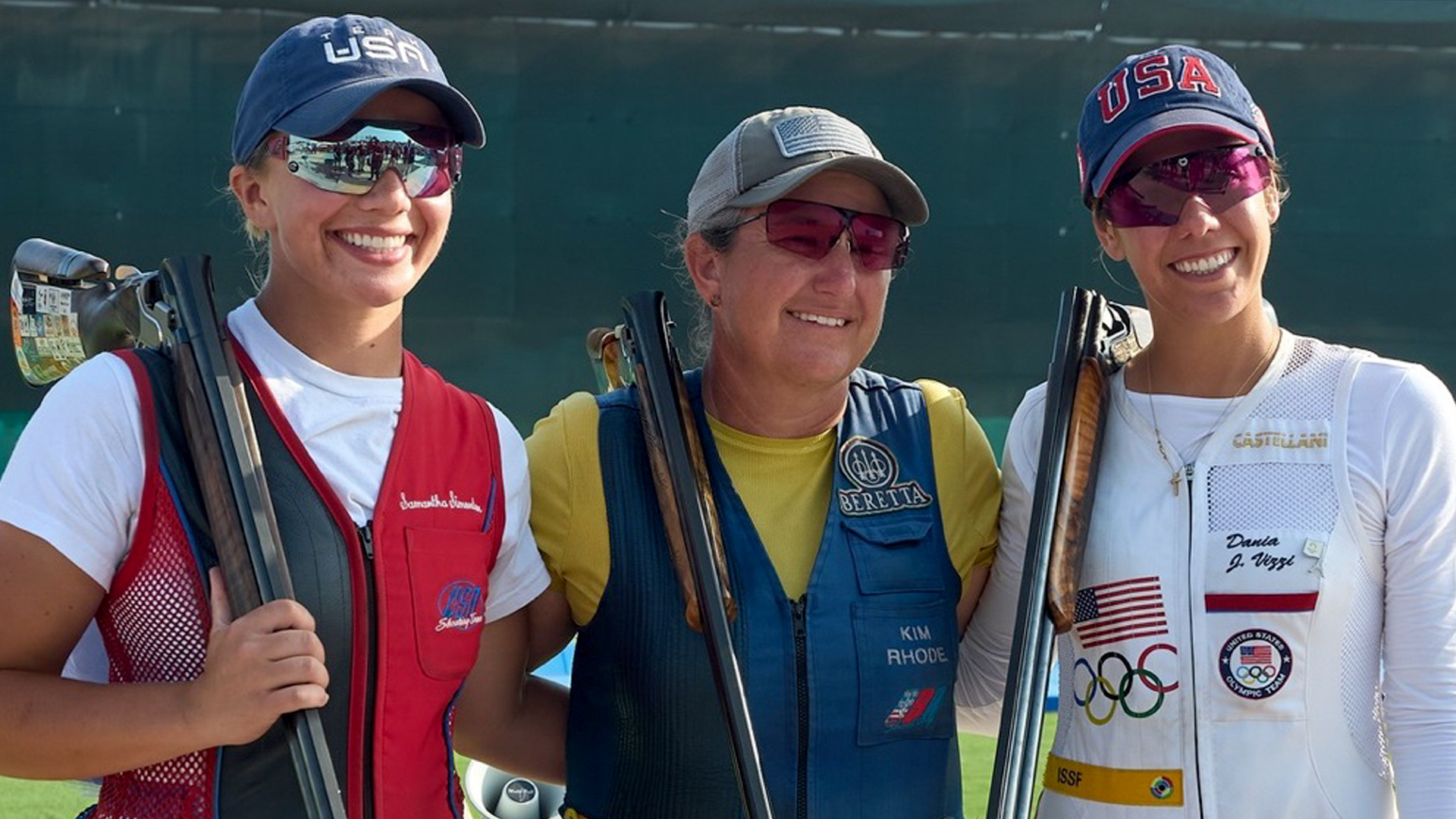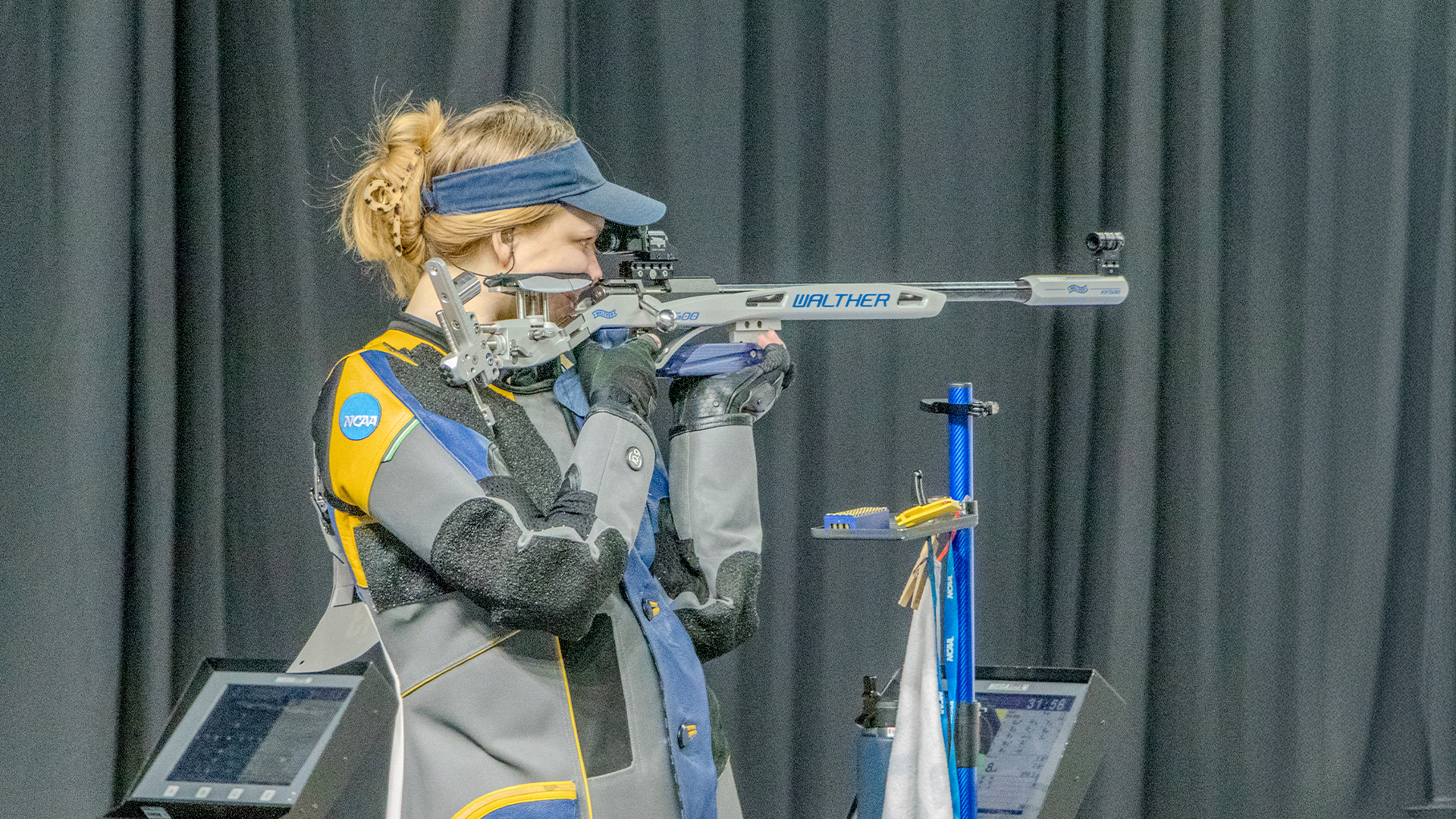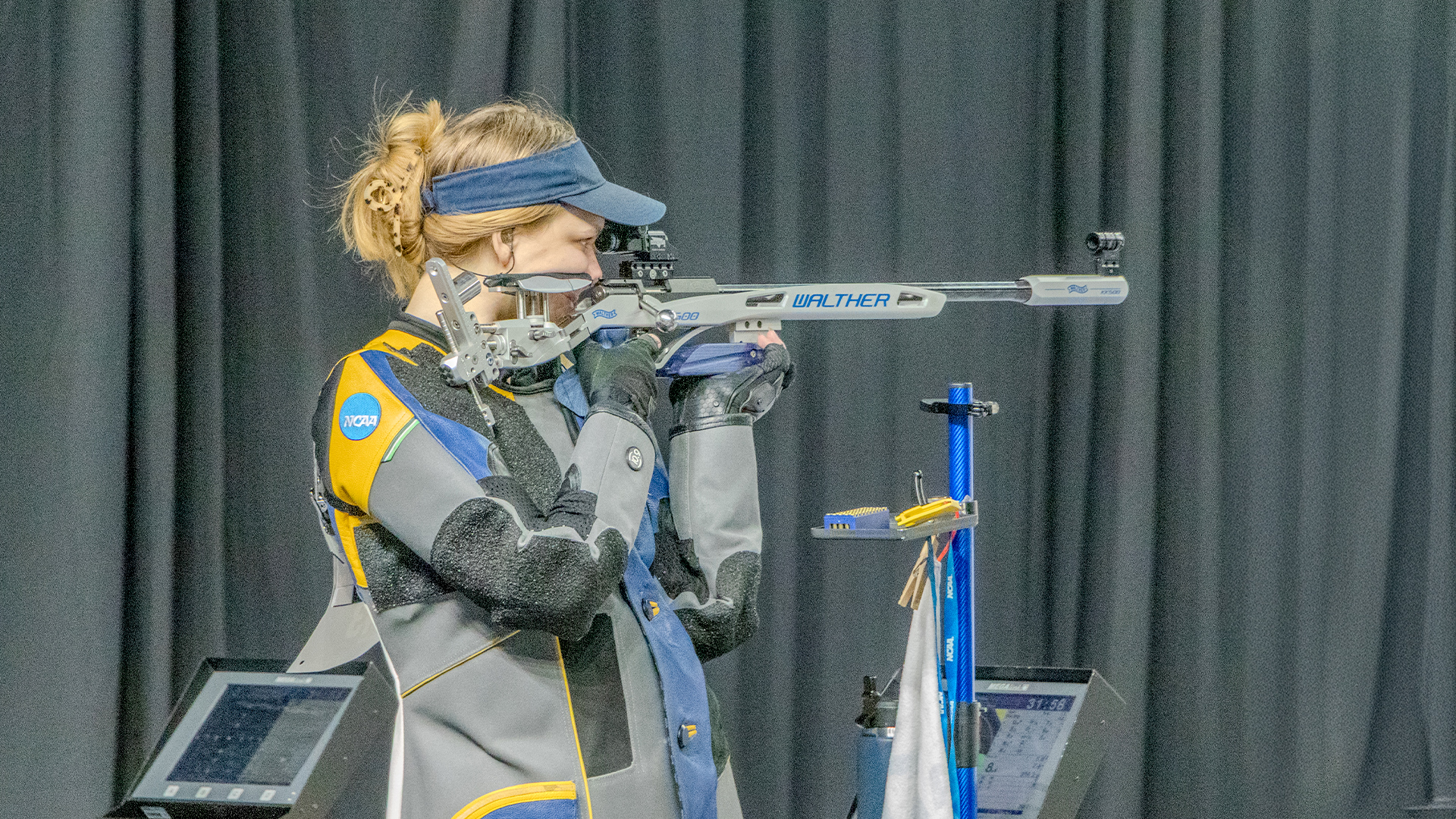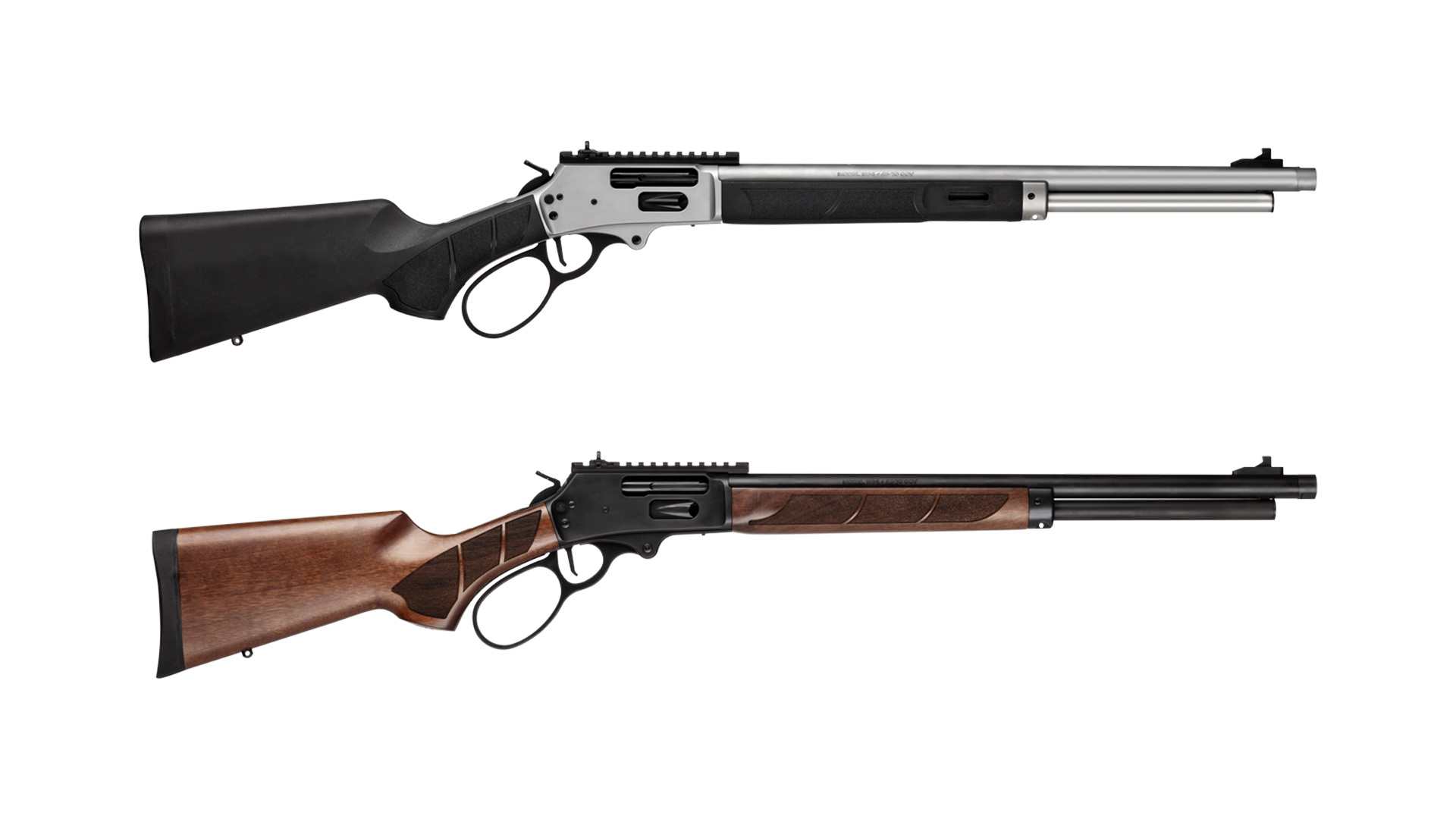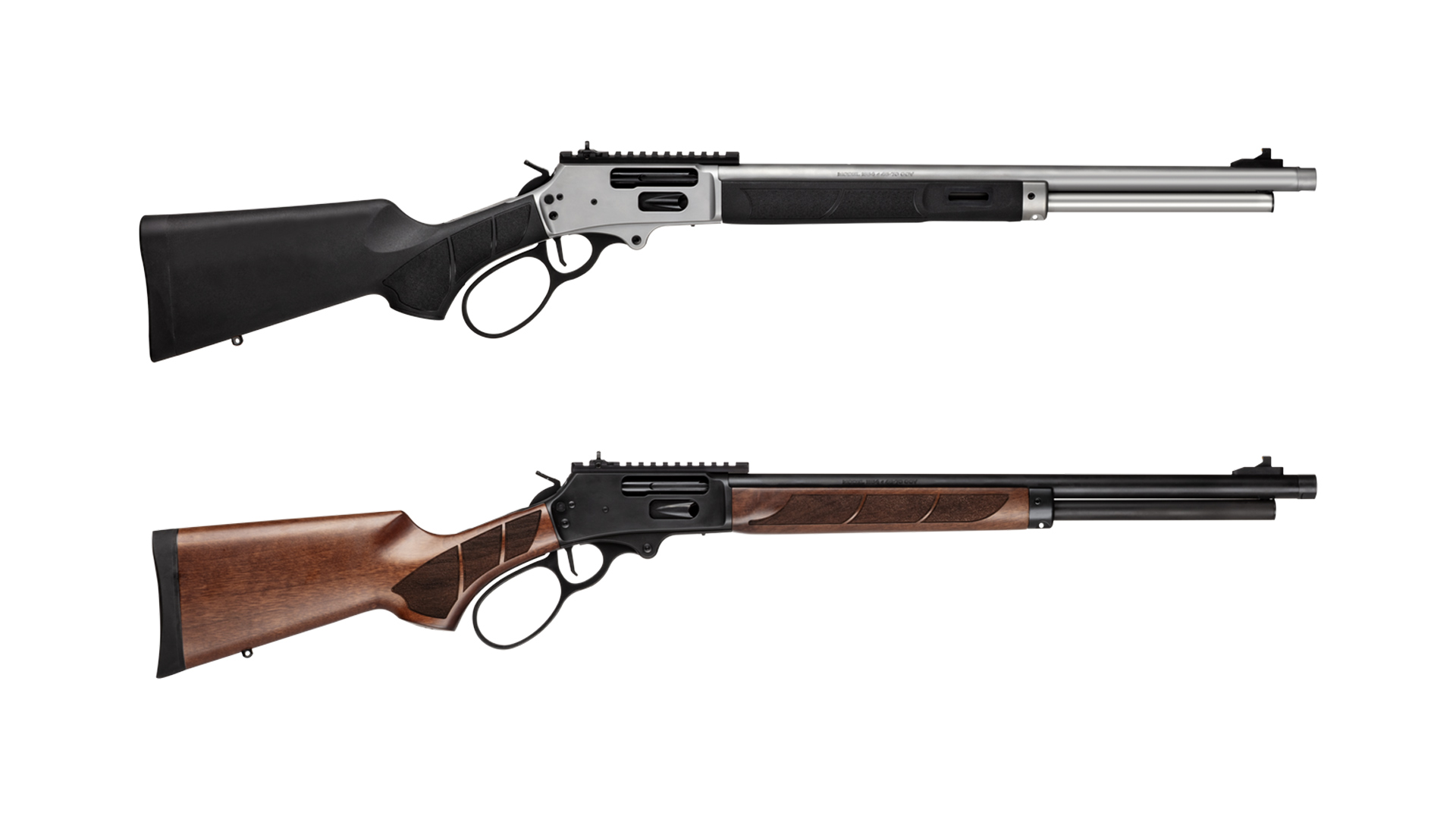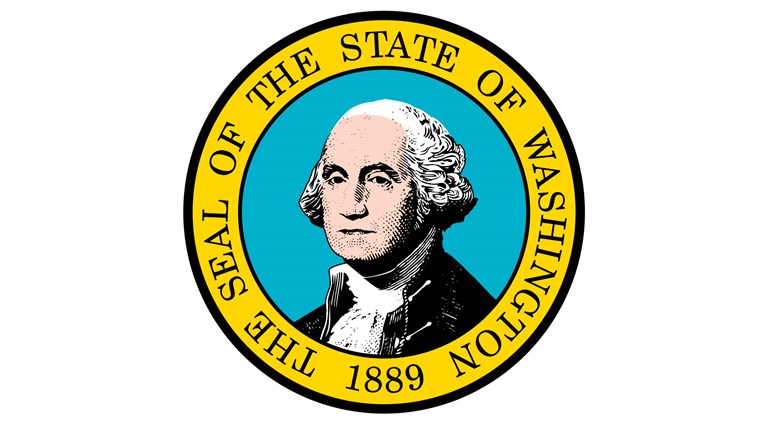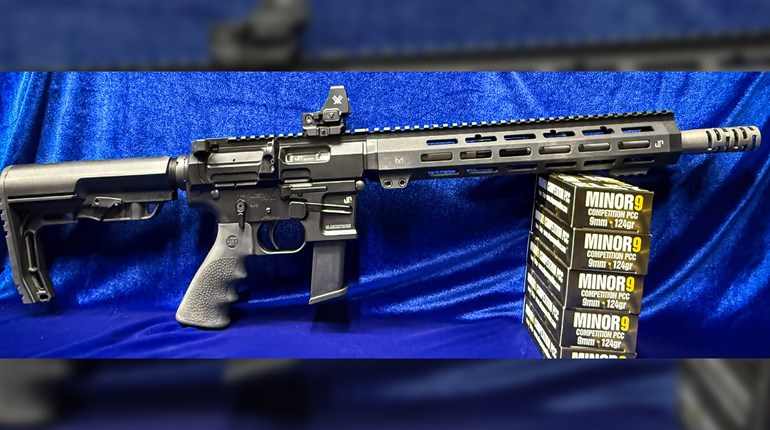
From the vault: Shooting Sports USA coverage of the 2001 U.S. Roberts Team winning across the pond in the U.K. at Bisley. By the great Paul Nordquist.
The 2001 United States Roberts Team returned from the world famous rifle ranges at Bisley, England, victorious in their quest for the Field Marshall Earl Roberts Trophy.

The Roberts trophy, placed in competition by the British National Smallbore Rifle Association (NSRA), bears the name of one of the United Kingdom’s great military heroes who was also the first president of the NSRA. It is contested at eight-year intervals in the U.K. The Pershing trophy, presented to the NRA by General of the Armies, John J. Pershing, Commander of the U.S. forces in Europe during World War I, is similarly in competition at eight-year intervals in the U.S.
The course of fire for both matches is the same: 20 shots each at 50 and 100 yards for all 10 firing members, prone, iron sights, with the targets and rules of the host country to apply. These two matches are the smallbore equivalent of the Palma matches in high power.
The 2001 Roberts team was selected using the scores in the 2000 smallbore iron sight aggregate at Camp Perry. The 12-person U.S. team traveled to Bisley last August to face the British team in competition for the Roberts trophy.
The team was accompanied by the Women’s Goodwill Randle team and by a group of friends, spouses and shooters—all tolled, almost 50 Americans traveled to Bisley to shoot or to support the team.
The Bisley ranges are renowned for winds that vary quickly in speed and direction and the conditions in 2001 were no exception. Americans tested these conditions in five days of individual matches marking the 100th anniversary of the founding of the NSRA. These matches were also used to select the 10 firing members of the Roberts team.
British smallbore shooting is what Americans know as metric prone—metric targets at 50 meters (or 50 yards reduced) and 100 yards, and nearly always with metallic sights. Two 40-shot any sight matches formed separate aggregates.
The pace of shooting at Bisley was more relaxed than what the Americans were used to. One 40-shot match in the morning and one in the afternoon was the usual schedule. The scores of the six matches (totaling 2800 points) formed the Championship Aggregate—contrasted to the 16-match, 6400-point Perry aggregate.
Ownership of the Roberts trophy was contested on the Century Range—named for its 100 full-bore (high power) firing points—transformed for smallbore into a 280-point smallbore operation with scoring, statistics and commercial row, all operating out of a large tent city. U.K. shooting clubs and organizations also had tents; The U.S. team’s base was two large tents (adorned with American flags) with tables to spread out equipment.
Smallbore shooters always have a lot of gear. Team Adjutant George Harris arranged for the loan of several carts from Chris Fordham, the author of a book on smallbore prone shooting entitled Prone to Win. The carts were enormously helpful in moving gear around the range.
A strong sense of history pervades Bisley. The National Rifle Association of England has been at Bisley since 1890, moving there from Wimbledon. The many Bisley clubhouses maintained by U.K. rifle clubs are replete with photographs, trophies and memorabilia that join the past and the present in an atmosphere of permanence and continuity rarely found on U.S. ranges.
Contrary to dire predictions of the British climate, fine weather prevailed with only a brief shower during one afternoon.

Individually, the U.S. shooters did well—a few highlights: Tony Leone of Douglasville, GA, won the 50-meter aggregate and was fourth in the Championship Aggregate (and fired the only 400, at 50 meters, shot all week); Celeste Green, of Lufkin, TX, was high junior in the 50-meter aggregate; Charles Sentner, of Allentown, PA, won both any sight aggregates; Paul Gideon of Gambier, OH, and Cory Brunetti, of Easton, CT, both won fired matches; and U.S. junior shooter, Jillian Szymonifka, age 14 from Clark, NJ, completely dominated D class, winning seven large, shiny silver trophies.
The Roberts team’s big day, August 17, was clear with the inevitable wind varying in speed from 9 to 11 o’clock. Team officials and non-firing team members coached—one coach for two shooters.
At 50 meters, the U.S. team pulled ahead by four points, 1933 to 1929. At 100 yards, the British got the edge by three points, 1922 to 1919, leaving the U.S. team in front by a lonely point, 3852 to 3851.
It could not have been cut finer: one point less—the score would have been tied and the British would have won by virtue of their higher score at 100 yards. It was a dramatic and satisfying win over a worthy opponent before a gallery of spectators from both nations.
Winning the Roberts trophy certainly sweetens memories of Bisley, but I suspect that equally important to us all will be the recollection of the many challenges presented, of the boundless British hospitality, and most of all—the honor of representing the United States at one of the most famous rifle ranges in the world.
Results of the 2001 International Match for the Earl Roberts Trophy
USA
Shane Barnhart, 389
Jamie Beyerle, 385
Cory Brunetti, 382
Erin Gestl, 384
Paul Gideon, 386
Celeste Green, 384
Lance Hopper, 387
David Johnson, 387
Tony Leone, 387
Butch Sentner, 381
Total: 3852
Great Britain
Mike Babb, 392
Neil Stirton, 390
Mike Bagot, 389
William Cole-Hamilton, 383
Tony Hammond, 384
Tony Lincoln, 377
Donald McIntosh, 385
Cliff Ogle, 384
David Phelps, 383
Keith Rowland, 384Total: 3851
More classic SSUSA articles:

